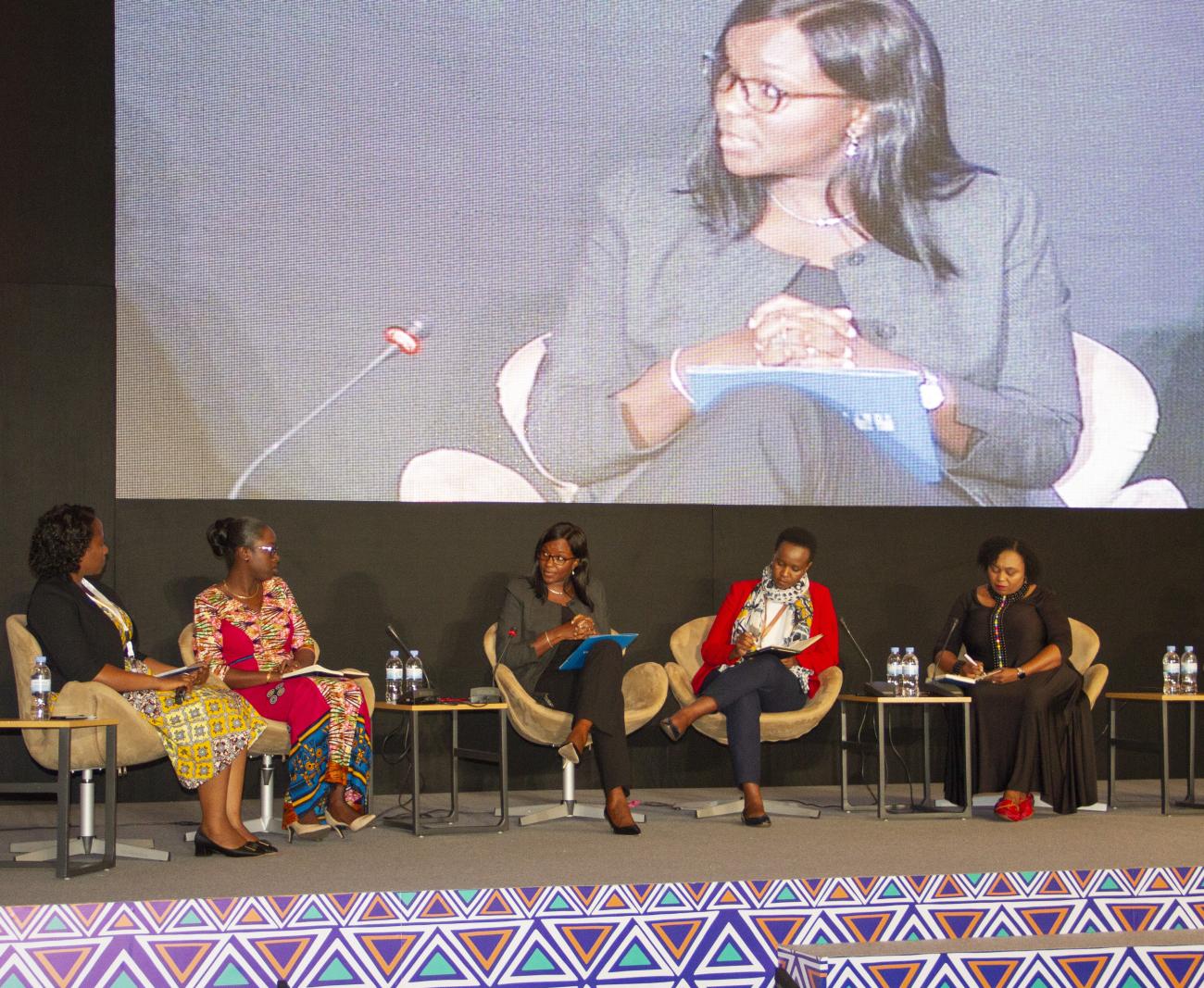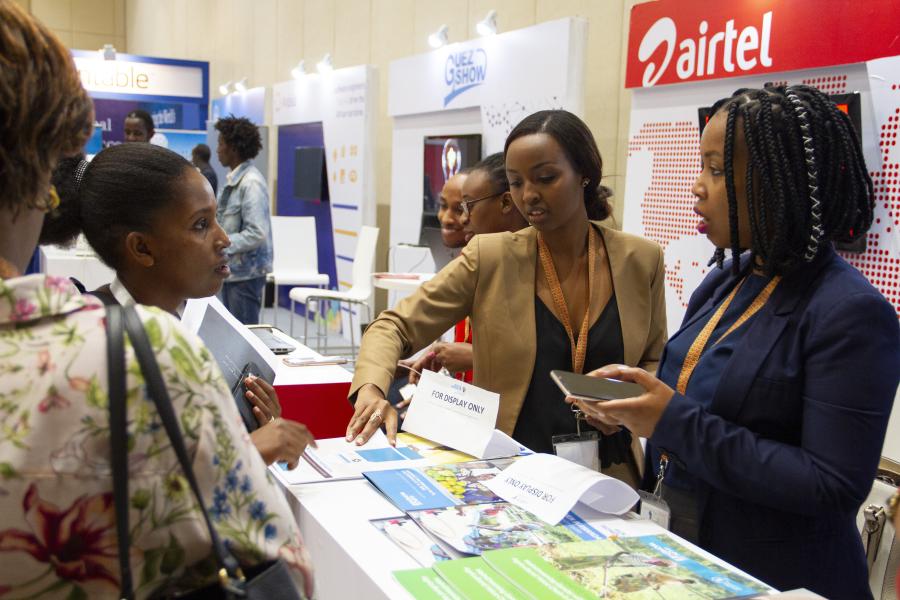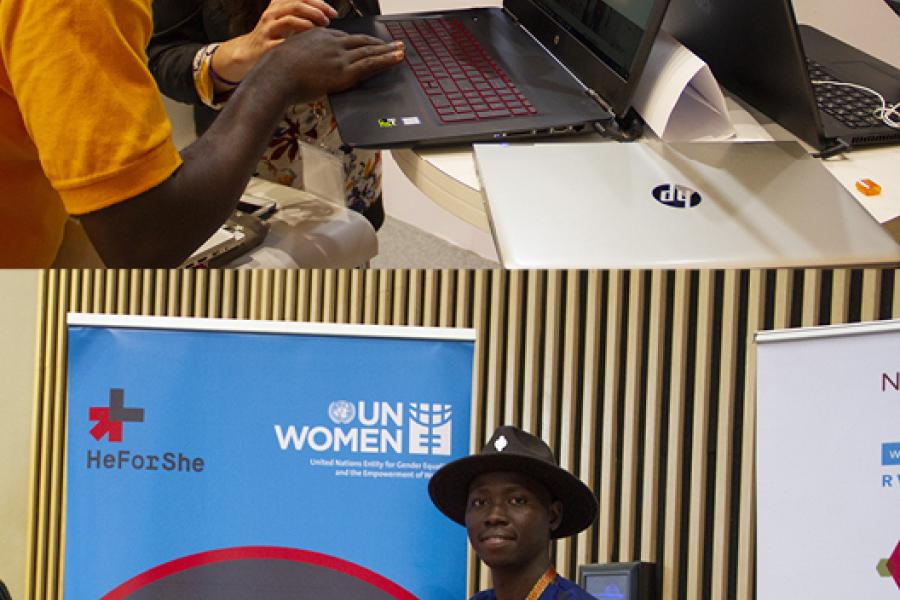CLOSING THE GENDER DIGITAL DIVIDE, BOOSTING AFRICA’S DIGITAL ECONOMY

“The full potential of technology to help humans will only be truly unlocked if women and girls are able to contribute.”
“The full potential of technology to help humans will only be truly unlocked if women and girls are able to contribute.”
Opening the 5th edition of the Transform Africa Summit that gathered over 4,000 innovators and digital pioneers from all over the continent, Sophia, the humanoid robot attending the Summit for the first time, emphasized on the need to close the gender digital divide in order to achieve effective transformation of the continent.
Setting the tone for the 3 day Summit, the opening ceremony accentuated that it takes courage and boldness of vision to dismantle the power structures that keep women excluded digitally, socially and economically, thus leaving them as observers of the digital revolution. Anchored on this year’s theme, 'Boosting Africa’s digital economy' which aimed at harnessing technology to quickly digitize African economies, the Smart Women Hub held in-depth discussions on the importance of ensuring women are not left behind in the 4th Industrial Revolution.
Unleashing the potential of women in the modern digital economy is key for the attainment of economic prosperity. According to the World Bank, a 10% increase in digital penetration could result in over 1% increase in GDP, while closing the gender digital divide could add up to 140 million USD per year to the mobile industry for the next 5 years. Commenting on these figures, the Minister of the Digital Economy of Mali, Hon. Kamissa Camara, emphasized that:
“The gender aspect can no longer be just an afterthought, but has to become a pillar of our economic policies.”
Addressing the avid participants of the session entitled “Against all odds: Leveling the digital gender divide”, Ms Fatou A. Lo, the UN Women Rwanda Representative affirmed that
"the gender digital divide results from and reinforces systemic gender inequalities and other sources of discrimination towards women. The digital world is a reflection of the physical world, the same issues that have kept women trailing behind on key development indices are the same ones affecting them in the digital space.
"The good news is that the digital world moves much faster than society and could quickly level the playing field for women by erasing the obstacles to gender equality that we see in the real world.”
In addition, issues of availability of quality data on the digital gender divide, innovative policies and partnership were stressed in all Smart Women Hub conversations, highlighting the need for consistent and strategic data collection and analysis that can lead to tangible mindset and behavioral change as well as true transformation in that regard. The Minister of Gender and family promotion concluded that
"We can’t just keep identifying women as a specific market, but we’d rather let women have an active role and be part of the digital solutions as innovators, designers, developers beyond simply using technology to improve their daily lives”.
In the same line, CNBC news anchor Nozipho Mbanjwa, while hosting the closing ceremony, reminded all the participants that so far, the available data and the use that has been made of it in terms of gender digital policies, hasn’t proved to be enough. To achieve this digital empowerment, all the panelists agreed on the importance of education, mentorship and positive role models for young girls in order to become the digital leaders of tomorrow.
Government, private sector and civil society need to join forces and invest in STEM and digital skills training for women and girls. UN Women is committed to provide equal educational opportunities to girls and young women through training and mentoring initiatives, with a particular emphasis in fields where women are underrepresented, such as STEM and ICT careers.

In addition, the success of pilot projects such as the Buy From Women digital platform - which provides easier access to information, finance and markets to women farmers - lies in the firm belief that giving women the skills and the visibility they need in this new digital space can open up tremendous opportunities for them and their communities, hence contributing to achieve the set targets under the 2030 Agenda for Sustainable Development, thus leading to a more inclusive and prosperous society.
To bridge the gender digital divide in the male dominated sector of new technologies, will require the active commitment of men, to take a stand to ending the discrimination women face in this sector. Leveraging the HeForShe global solidarity movement at the Transform Africa Summit, UN Women sensitized men on the gender inequalities, and emphasized on the role that they can play to combat this discriminatory violation of human rights that still hamper the enjoyment of human rights for millions of women and girls across the globe. This was also an occasion to encourage them to commit to the HeForShe movement online and highlight clear avenues for them to fight gender inequalities in their everyday lives.
The diversity of the participants present at the Transform Africa Summit created a platform for the call to empower women and girls to be echoed beyond Rwanda and the continent and to the entire globe.






